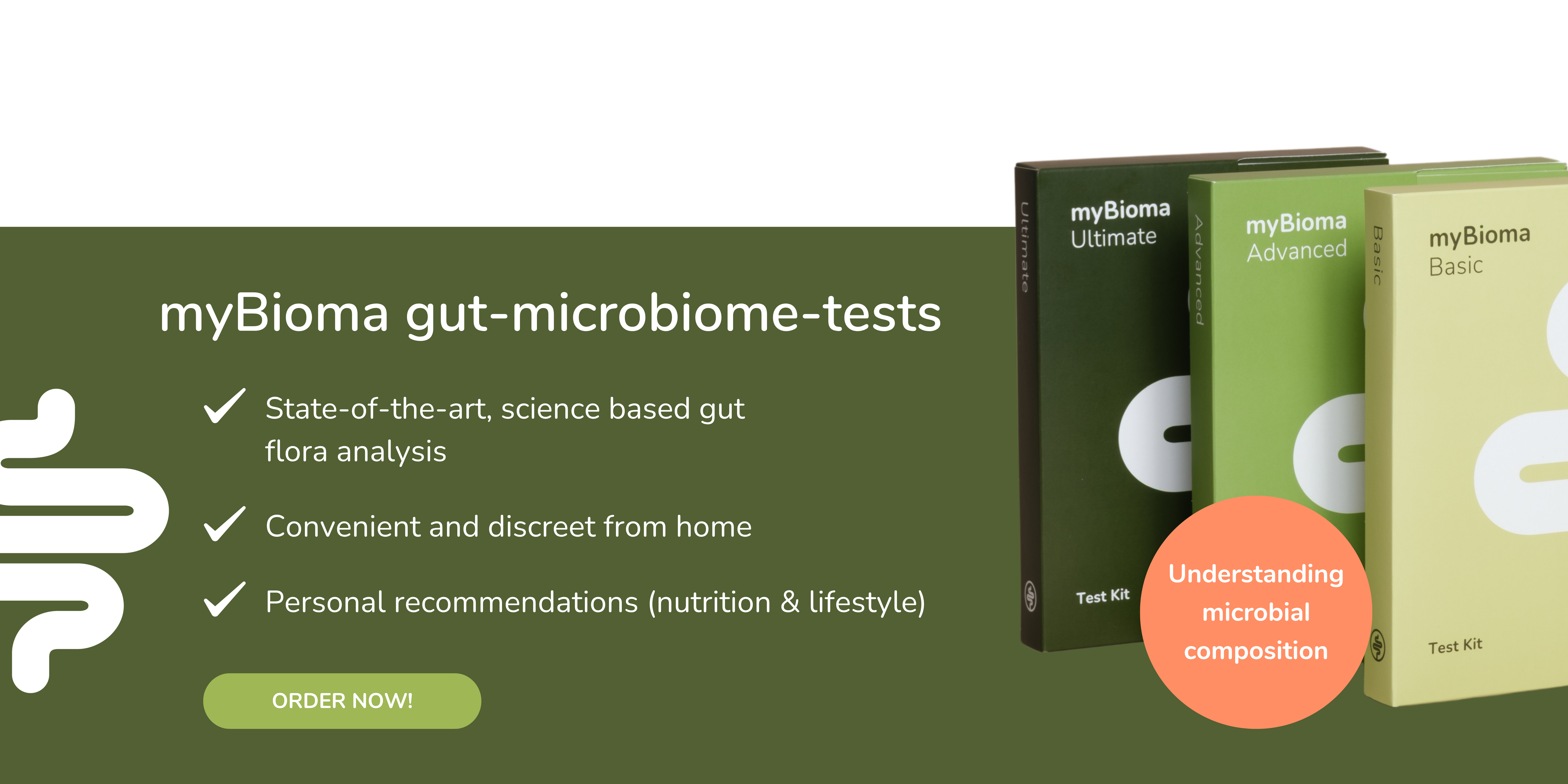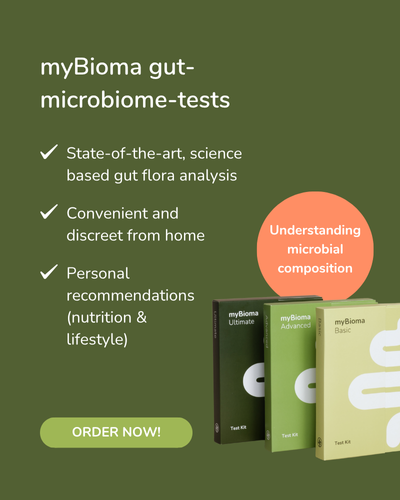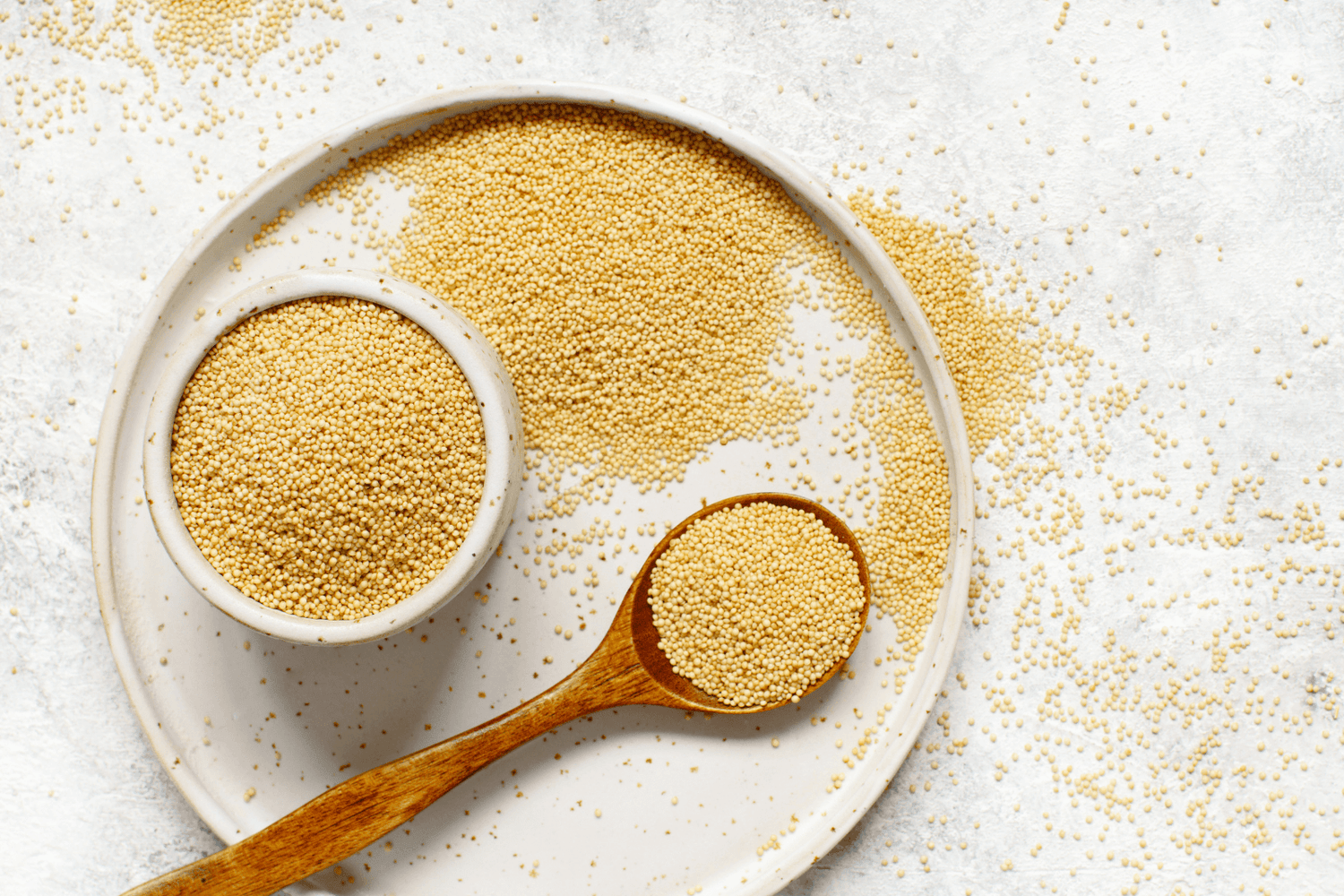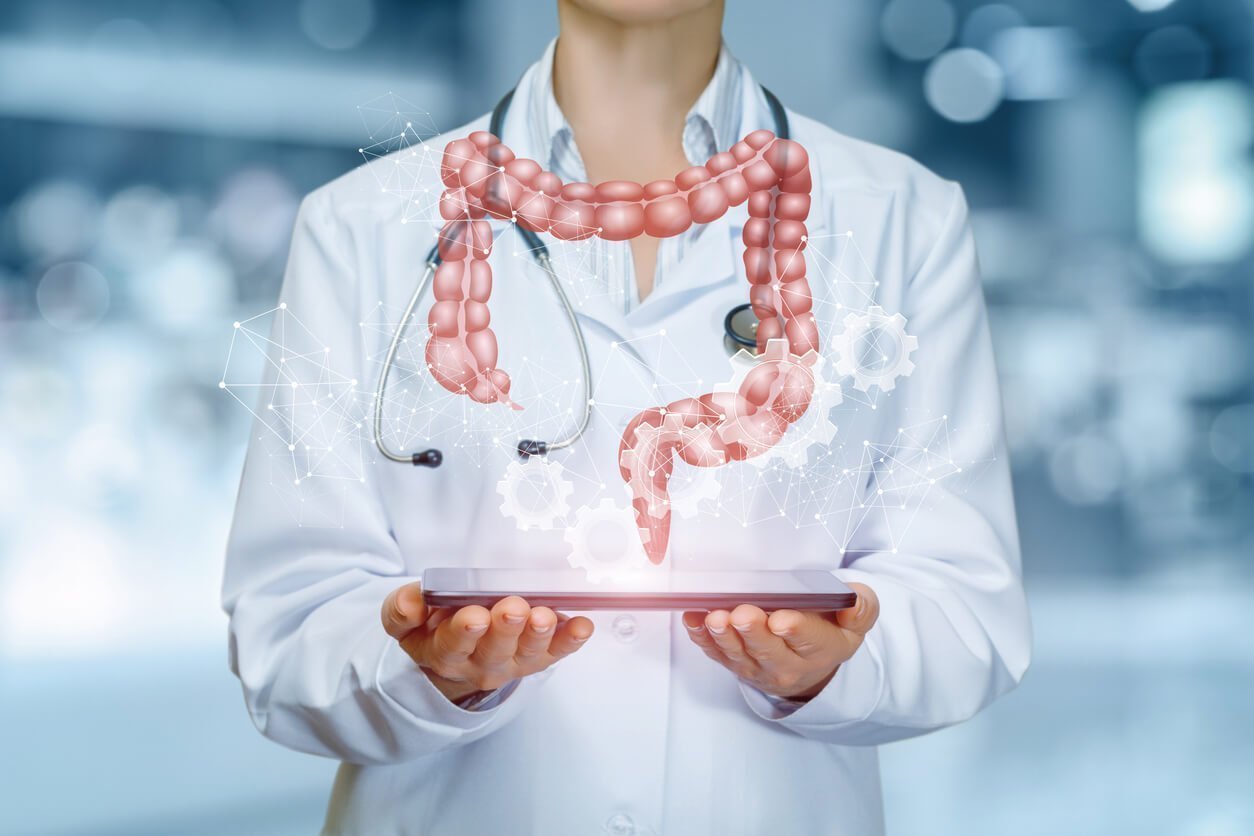Can you see the autumn leaves yet? This means summer is over and so are the sunny days outside. Of course, when we talk about the sun, the first thing that comes to mind is vitamin D.
How we absorb vitamin D
Our main sources of vitamin D are natural sunlight (I hope you've been getting those 10 minutes of sun every day for the past few months), Food (not found in too many foods) and dietary supplements (who doesn’t take them?).
After synthesis in the skin or absorption through diet/supplements, vitamin D remains inactive until it undergoes two hydroxylation reactions, first in the liver and then in the kidneys, to form 1,25 (OH)2D. As it circulates, it binds to the vitamin D receptors found in various tissues.
Our gut bacteria do not express vitamin D receptors, so any interaction would have to be at least indirect. However, vitamin D receptors are found in various human tissues, such as adipose tissue, liver… and intestine (3), where, together with vitamin D, they regulate the integrity of the intestinal barrier and modulate innate and adaptive immunity.
So what does the gut microbiome have to do with vitamin D?
Well, there's probably at least a connection. About 40% of Europeans suffer from vitamin D deficiency, with 13% having a severe deficiency (1). Other studies go further and report that vitamin D deficiency can affect up to 80% of the population in Arab countries (2). Although primarily associated with mineral ion homeostasis and immune regulation, vitamin D deficiency has also been linked to many other non-skeletal diseases, including obesity, inflammatory bowel disease, diabetes, cardiovascular disease, cancer, and autoimmune diseases (8).
The interaction between vitamin D and the microbiome is thought to modulate multiple physical mechanisms, such as the production of antimicrobial peptides, maintenance of barrier function, upregulation of innate immunity, and changes in the absorption of calcium and phosphorus (2). 24 Studies show 22 a connection between vitamin D and the microbiome, particularly with regard to beta diversity (the structure of microbiome communities) (2).
The gut barrier and vitamin D
In fact, the interplay between the gut microbiome and vitamin D appears to be primarily related to maintaining the integrity of the intestinal barrier, as vitamin D deficiency is often associated with inflammatory and metabolic diseases. A mouse knockout study (in which the vitamin D receptor in the intestinal epithelial cell was inactivated) resulted in a dysbiotic state and a decrease in Lactobacillus and butyrate producers (4). This is consistent with a recent study in older men, where those with the highest vitamin D levels were more likely to harbor butyrate producers (8). A recent review identified a significant change in the abundance of Firmicutes, Actinobacteria, and Bacteroidetes and identified metabolic pathways involved in lipid metabolism and fatty acid biosynthesis, which are known to play a role in intestinal vitamin D absorption (5).
Can vitamin D alter our microbiome?
In fact, shifts in microbial populations were observed with vitamin D supplementation in a total of 4 out of 5 studies (6).
Despite the lack of agreement between studies, we can all agree that vitamin D deficiency can promote several diseases or subclinical conditions that can lead to disease. Although the mechanism of interaction between vitamin D, vitamin D receptors and the gut microbiome is still missing, a huge amount of data points to an interplay between these components and an influence on human health.
So, stock up on vitamin D supplements, try to take advantage of the brief moments of sunlight... or move to a sunny country with a fish-rich diet.
*Foods rich in vitamin D: cod liver oil, salmon, herring, swordfish, tuna, sardines, beef liver, egg yolks, fortified milk and plant-based milk products and fortified cereals.
References
- Amrein, K., Scherkl, M., Hoffmann, M. et al. Vitamin D deficiency 2.0: an update on the current status worldwide. Eur J Clin Nutr 74, 1498–1513 (2020). https://doi.org/10.1038/s41430-020-0558-y
- Waterhouse, M., Hope, B., Krause, L. et al. Vitamin D and the gut microbiome: a systematic review of in vivo studies. Eur J Nutr 58, 2895–2910 (2019). https://doi.org/10.1007/s00394-018-1842-7
- Sun J. Dietary vitamin D, vitamin D receptor, and microbiome. Curr Opin Clin Nutr Metab Care. 2018 Nov;21(6):471-474. doi: 10.1097/MCO.0000000000000516. PMID: 30169457; PMCID: PMC6168421.
- Wu S, et al., Intestinal epithelial vitamin D receptor deletion leads to defective autophagy in colitis. Gut, 2015. 64(7): p. 1082–94.
- Bellerba F, Muzio V, Gnagnarella P, Facciotti F, Chiocca S, Bossi P, Cortinovis D, Chiaradonna F, Serrano D, Raimondi S, Zerbato B, Palorini R, Canova S, Gaeta A, Gandini S. The Association between Vitamin D and Gut Microbiota: A Systematic Review of Human Studies. Nutrients. 2021 Sep 26;13(10):3378. doi: 10.3390/nu13103378. PMID: 34684379; PMCID: PMC8540279.
- Waterhouse M., Hope B., Krause L., Morrison M., Protani M. M., Zakrzewski M., et al. (2019) Vitamin D and the gut microbiome: a systematic review of in vivo studies. Eur. J. Nutr. 58; 2895–2910.
- Singh, P., Rawat, A., Alwakeel, M. et al. The potential role of vitamin D supplementation as a gut microbiota modifier in healthy individuals. Sci Rep 10, 21641 (2020). https://doi.org/10.1038/s41598-020-77806-4
- Thomas, R.L., Jiang, L., Adams, J.S. et al. Vitamin D metabolites and the gut microbiome in older men. Nat Commun 11, 5997 (2020). https://doi.org/10.1038/s41467-020-19793-8







